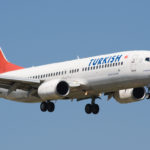
Greece may win over last-minute visitors scared away from tourist rival Turkey after the failed military coup but overall growth in the sector remains fragile, according to the country’s largest tourism body.
Greece is relying on its sun-drenched islands, sandy beaches and ancient monuments for an economic turnaround. Tourism accounts for about 17 percent of its EUR€185 billion economic output and employs one in five people in work.
“Turkey’s share of last-minute arrivals will shrink and it will probably suffer cancellations,” Andreas Andreadis, head of Greek tourism businesses association SETE, said. “Greece will gain a share, even if it is a small one.”
But Andreadis said he could not exclude a spillover effect from Turkey which could impact overall arrivals.
“We don’t like the fact that Turkey is destabilised, it could also affect Greece. We are not happy about this,” he said.
Turkey’s tourism industry was already suffering from a series of bomb attacks before the military coup attempt on July 15.
Earlier this year, SETE projected a 5 percent rise in tourism revenues for 2016 to EUR€15 billion on the back of 25 million tourists, up from 23.6 million last year, when Greece was on the verge of leaving the euro zone.
The estimate hinges mainly on last-minute arrivals.
Germany and Britain are Greece’s biggest tourism markets. But tourist spending patterns might be worrying; Central Bank data for May showed tourism earnings down 10.4 percent year on year as visitors reined in spending.
That tightening was most pronounced with a 29.2 percent drop in spending by Britons, where a see-sawing currency, weakened by the referendum to leave the European Union, made holidays in Greece more expensive.
Andreadis said arrivals may turn out lower than initial estimates, while revenues could grow by 1-2 percent.
“This year’s projection is a puzzle for advanced players. It’s like quicksand.”
REUTERS






